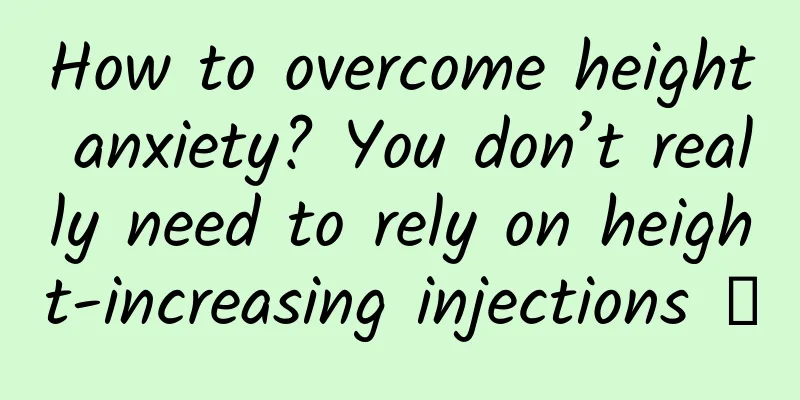Black discharge during ovulation

|
There will be some vaginal discharge during the ovulation period, which is what we call leucorrhea, and leucorrhea is generally white. If you have black discharge during the ovulation period, it may be caused by bleeding accompanied by leucorrhea. You don’t need to worry too much about this. If there is still black discharge after the ovulation period, you need to pay attention to it. At this time, it may be due to abnormal leucorrhea caused by inflammation. Normally, leucorrhea during ovulation should be colorless, transparent or milky white, but many women find that they have brown discharge during ovulation. What is going on? 1. Generally speaking, brown discharge in leucorrhea during ovulation may be caused by ovulation bleeding. Brown discharge in leucorrhea during ovulation may also be due to a decrease in estrogen levels in the body. The endometrium may fall off due to the decrease in hormone levels, resulting in bleeding. If the amount of bleeding is not large and the duration is short, it will generally stop on its own within 2-3 days. There is no need to worry as it is a normal phenomenon. 2. If the brown discharge in the leucorrhea during ovulation does not disappear after 2-3 days, it may be caused by some gynecological diseases. For example, uterine fibroids and endometriosis can cause brown discharge. 3. Mental stress can also cause brown discharge during ovulation. Excessive mental stress or mental depression can have a great impact on changes in women's menstrual period. Therefore, in daily life, female friends should try their best to adjust their mentality. The benefits of maintaining a good mood to the body are self-evident. 4. Continuously taking certain medications for a period of time can also cause brown discharge in the leucorrhea during ovulation. Drugs can cause endocrine disorders, menstrual disorders, etc. What are the symptoms of ovulation? When does ovulation occur? Does it indicate anything to our body? Many people are confused about ovulation. Let's take a look at the symptoms when ovulation occurs. 1. Anal swelling When you feel a slight falling sensation in your anus and a slight pain in your lower abdomen, it may mean that you are currently in your ovulation period, because the mature eggs are being discharged from the ovaries at this time, which will cause this kind of reaction. 2. Increased vaginal discharge During ovulation, you will clearly feel that your secretions are more than usual and become thinner, mostly in the shape of egg white. This significant increase in secretions usually lasts about 2 days. And this is the peak period of your ovulation. 3. Breast tenderness During ovulation, many women experience nipple tingling and breast tenderness. In severe cases, your nipples may be extremely painful when touched, and sometimes the breast pain may even continue until your next menstrual period. |
<<: Nipple pain after ovulation
>>: Can a woman have sex after giving birth for one month?
Recommend
Should I check my period 12 days before it starts?
The menstrual period is a basis for judging the p...
Should I use starch or flour to fry chicken? Which flour is better for frying chicken?
We all know that there are many ways to cook chic...
How do women with thick backs treat their condition?
If women have thick backs, their body lines will ...
Can I have sex if I am less than one month pregnant?
Many newlyweds, because it is their first time ge...
What should I pay attention to after the due date?
We all know that the due date is a common estimat...
What are the reasons for early menstruation?
Menstruation is a physiological characteristic of...
Can I massage my breast if I have a lump?
If you massage a lump in your breast, you need to...
Is it useful to soak your feet with mugwort leaves for cold uterus?
Foot soaking is a health care method that has bee...
Menstrual endometrial shedding picture
The problem of uterine wall falling should be car...
How long does it take to recover from a miscarriage?
Abortion may not be a big problem for some young ...
Can eating raw peanuts stop bleeding during menstruation?
Many women are confused about whether they should...
Why does a woman's nipple hurt?
It is very common for women to have nipple pain i...
Is a pimple on a woman's private parts a sexually transmitted disease?
Pimples can appear anywhere on the body. They are...
What is this hard thing in my vagina?
It is said that men are prone to develop the bad ...
Picture of pregnant belly in five months
Due to individual differences, everyone's abd...









